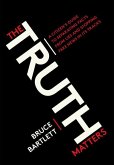In this new important book, Graldine Muhlmann provides a comparative history of the rise of modern journalism, from the revolution of the late nineteenth century, with its new concern for facts, through to the present day. Her account is structured around the tension between what she calls the unifying and decentring tendencies in modern journalism that is, the concern to give readers a truth that is acceptable to all, on the one hand, and the concern to resist dominant representations and give voice to alternative views, on the other.
She illustrates her account with a wide range of case studies, from Sverine, who covered the trial of Dreyfus in late nineteenth-century France, to the great Vietnam War reporters, Seymour M. Hersh and Michael Herr. In between are fascinating new readings of famous figures like George Orwell and Norman Mailer as well as some less well-known writers, such as the great American muckraker, Lincoln Steffens, and the French crusading journalist,Albert Londres.
This historical and comparative account of the rise of modern journalism will be an ideal text for courses in journalism, political communication and media history. Written by an author who believes that journalism is crucial to our modern democracies and that it deserves to be studied with knowledge and care, the book raises serious questions about the role of the reporter and about the sorts of journalism that are possible in the twenty-first century.
She illustrates her account with a wide range of case studies, from Sverine, who covered the trial of Dreyfus in late nineteenth-century France, to the great Vietnam War reporters, Seymour M. Hersh and Michael Herr. In between are fascinating new readings of famous figures like George Orwell and Norman Mailer as well as some less well-known writers, such as the great American muckraker, Lincoln Steffens, and the French crusading journalist,Albert Londres.
This historical and comparative account of the rise of modern journalism will be an ideal text for courses in journalism, political communication and media history. Written by an author who believes that journalism is crucial to our modern democracies and that it deserves to be studied with knowledge and care, the book raises serious questions about the role of the reporter and about the sorts of journalism that are possible in the twenty-first century.
"At last! A truly intelligent and well-written book on this most elusive subject ? what, indeed, is at the heart of that matter we call journalism?"
Norman Mailer
"An immensely thoughtful book (that) brilliantly achieves the author s ambition to have meaning for those who practise journalism or wish to do so ."
Tim Luckhurst, Times Higher Education
"Its engagement with journalism as a developing set of practices is very refreshing."
Australian Journalism Review
"This is a stimulating and deeply intelligent book, full of striking insights into landmarks in the journalistic history of Britain, France, and the US. A Political History of Journalism is the most sophisticated inquiry I know into the complexity of a serious journalist s two enduring problems: how to find a relation to events in which they are not flattened into false familiarity, and a relation to readers in which they are not seduced into false consensus."
Todd Gitlin, Graduate School ofJournalism, Columbia University
"Géraldine Muhlmann s A Political History of Journalism is a fascinating and carefully argued account of how journalism can create and challenge democratic community. It is a highly original contribution to the history of journalism and to the study of the processes that constitute the public sphere."
Daniel C. Hallin, University of California, San Diego
Norman Mailer
"An immensely thoughtful book (that) brilliantly achieves the author s ambition to have meaning for those who practise journalism or wish to do so ."
Tim Luckhurst, Times Higher Education
"Its engagement with journalism as a developing set of practices is very refreshing."
Australian Journalism Review
"This is a stimulating and deeply intelligent book, full of striking insights into landmarks in the journalistic history of Britain, France, and the US. A Political History of Journalism is the most sophisticated inquiry I know into the complexity of a serious journalist s two enduring problems: how to find a relation to events in which they are not flattened into false familiarity, and a relation to readers in which they are not seduced into false consensus."
Todd Gitlin, Graduate School ofJournalism, Columbia University
"Géraldine Muhlmann s A Political History of Journalism is a fascinating and carefully argued account of how journalism can create and challenge democratic community. It is a highly original contribution to the history of journalism and to the study of the processes that constitute the public sphere."
Daniel C. Hallin, University of California, San Diego








